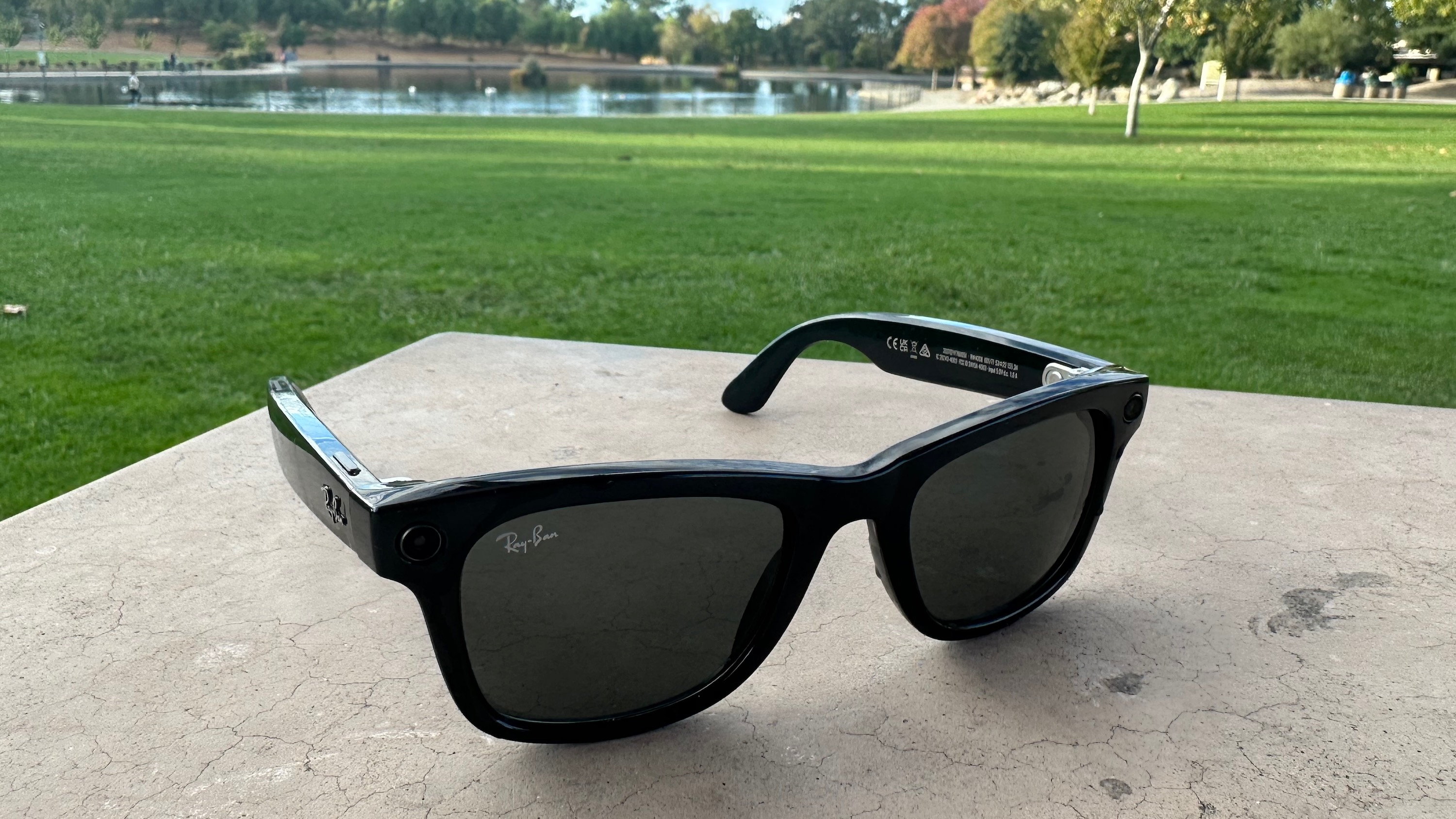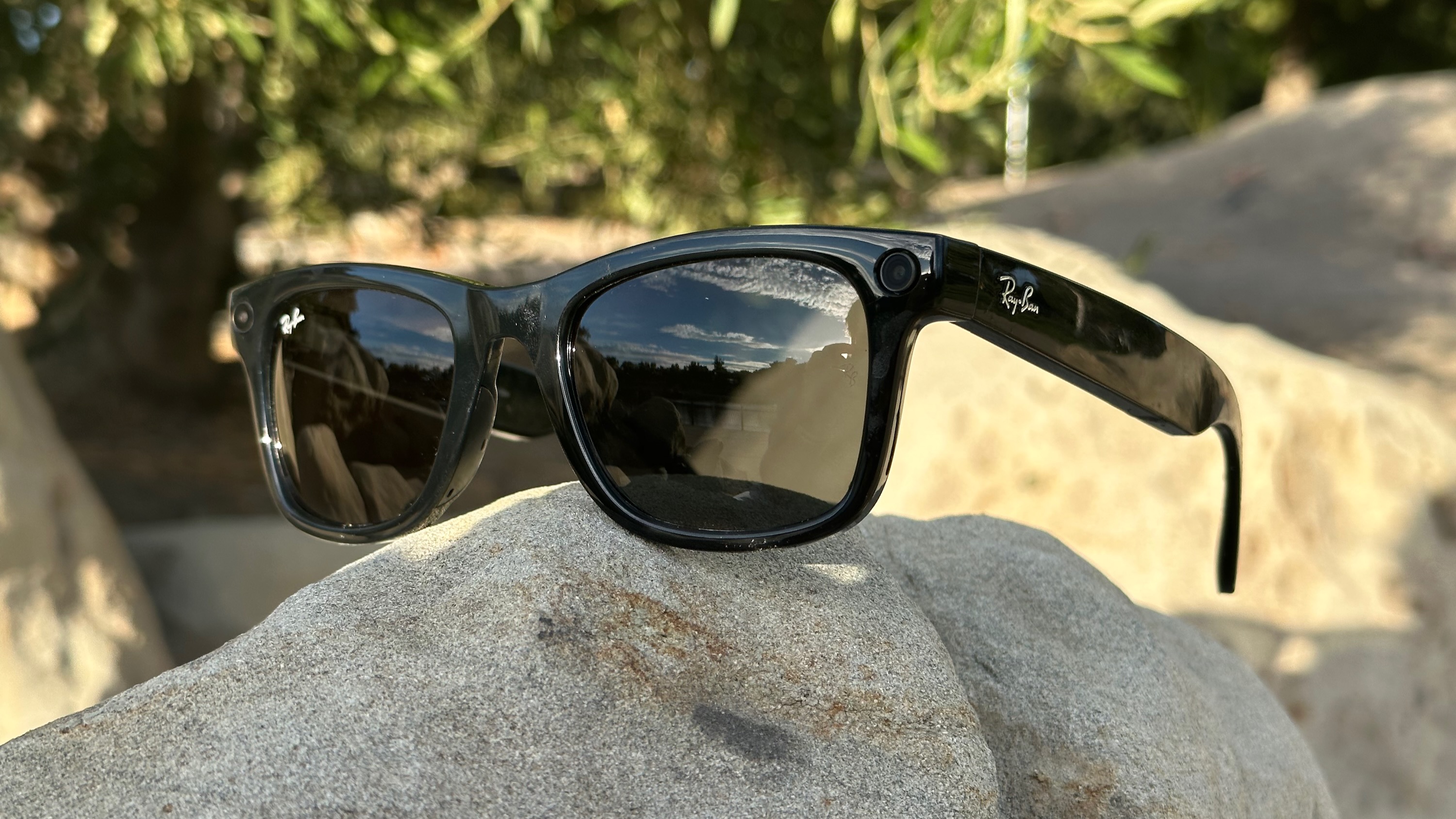
What you need to know
- According to The Verge, Google may be looking to partner with EssilorLuxottica to make Gemini-powered smart glasses.
- However, EssilorLuxottica is already the maker of Meta Ray-Ban smart glasses, and that's unlikely to change.
- Meta and EssilorLuxottica have found success with their smart glasses, and Meta is reportedly considering an investment in EssilorLuxottica.
EssilorLuxottica is the eyeglass retailer that you might not know is behind the Meta Ray-Ban smart glasses. To make these spectacles, Meta brought the tech smarts and EssilorLuxottica brought the experience — the company has been making eyewear under some name or another since 1849. Following the overwhelming success of the Meta Ray-Bans, Meta is reportedly interested in continuing its relationship with the eyeglass company, but Google might have something to say about that.
According to a report from The Verge, Google reached out to EssilorLuxottica about making a new pair of smart glasses with Gemini, its AI assistant. It's unclear what a partnership between Google and the eyeglass maker might look like; however, The Verge's sources say it's “extremely unlikely” that Meta would be dropped in the process. That said, it's unsurprising that Google is starting to make real preparations for another smart glasses product.
Of course, Google is known for infamously making Google Glass ahead of its time. More recently, the company has publicly made moves toward returning to the augmented reality space. For example, it briefly showed off a prototype version of AR smart glasses with Gemini capabilities at Google I/O earlier this year. It also demoed Project Starline and Project Astra, both of which make use of augmented reality and AI to provide new experiences.

I tried out Project Astra in a demo at Google I/O, and its easy to see how this kind of technology could integrate with a pair of smart glasses. Project Astra is a multimodal AI modal that can process visual input, voice input, and text. While most large language models (LLMs) only have the information stored in their data sets and training materials, multimodal models are more versatile. A model like Project Astra could tap into an LLM, multimodal input for context, and web results for up-to-date information, for example.
Currently, Project Astra seems to be in its early stages. Google released a pretty convincing pre-recorded video showing its capabilities ahead of its developer conference, but it didn't back that up in live demos. There also isn't an official release date for when Project Astra might release. Meanwhile, OpenAI is getting closer to fully debuting its multimodal GPT-4o model with voice. Meta updated its Ray-Ban smart glasses to support multimodal inputs, too.
A partnership between Google and EssilorLuxottica could result in a smart glasses product with Gemini, which has already started to take over in Android, replacing the Google Assistant in many areas. The version of Gemini that would ship with smart glasses would likely feature many of the experimental functionalities Google has shown off under the Project Astra name.
However, it seems likely that either Google or Meta would want some level of exclusivity with EssilorLuxottica. The two companies will be strong competitors when and if Google releases a pair of smart glasses. You could argue that they are already competing in the key areas of artificial intelligence, virtual/augmented reality, and social networking. While there is an obvious benefit for EssilorLuxottica to partner with as many companies as makes sense, I'm not sure Meta or Google will go for it.
Why the Meta and EssilorLuxottica partnership just makes sense

Google's reported interest in teaming up with EssilorLuxottica seems like a long shot if, for no other reason, its current partnership with Meta just makes sense. Meta was the first to pull off mainstream smart glasses, and they're in physical retail stores nationwide. Prior attempts from Google and from other companies — like Snapchat and Amazon — haven't been nearly as successful.
There's also another factor to consider. EssilorLuxottica's brands have real value, and the company can't waste its brand power and integrity on a half-baked project from Google. We already know that Google has a propensity to kill off projects before even giving them room to grow, and that creates a risky situation for a traditional retailer like EssilorLuxottica. Ray-Ban, for example, is a valuable brand with instantly-recognizable designs. Partnering with Google for a lesser product could cause more harm to that brand than good.
Finally, Meta isn't going to lose that partnership easily. In fact, the company is proactively looking to make a sizable investment in EssilorLuxottica. According to the Financial Times, Meta wants to buy 5% of the eyeglass maker in exchange for billions. Meta owning a stake in the company, even a small one, would go a long way in ensuring that their partnership will continue. Unlike the rumored Google talks, the Meta/EssilorLuxottica deal is said to be advanced and likely to be finalized.
It shouldn't be surprising that Google is opening up a line of communication with EssilorLuxottica. The company has a recognizable brand and more than a century of experience making eyewear. However, I think Meta and EssilorLuxottica are deeply intertwined at this point, and a new deal would be high risk and low reward for the European eyeglass conglomerate. Google might have to turn elsewhere if it wants to mass-produce a new pair of smart glasses.







